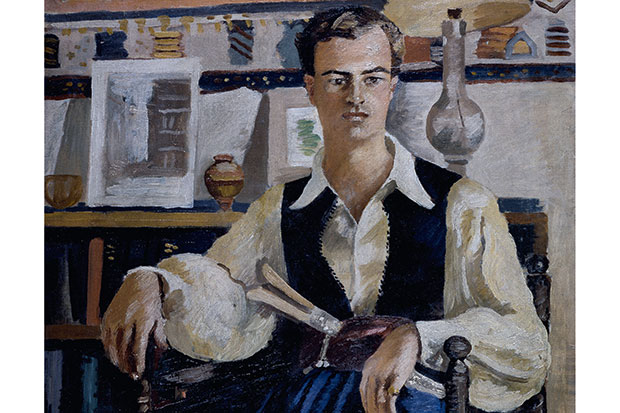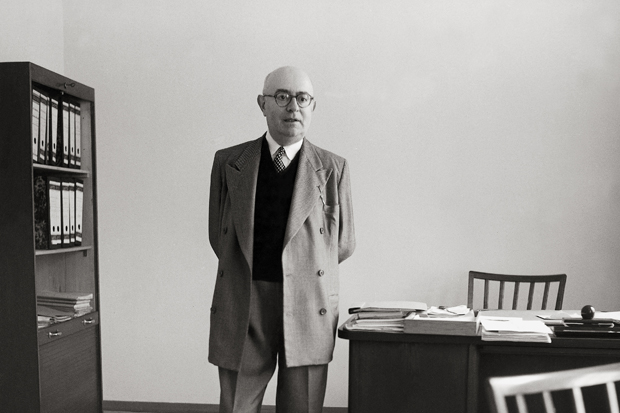Ashraf Marwan was an Egyptian-born businessman, a son-in-law to Nasser and a political high-flyer in the administration of Sadat, who fell off the balcony of his flat in Carlton House Terrace, central London, in June 2007. His death was watched with incredulity by business colleagues assembled in an office across the road, who recalled seeing two burly, possibly Middle-eastern figures framed in the tableau. Investigations were inconclusive. Marwan, then in his sixties, wasn’t well, but hadn’t seemed suicidal. On the other hand, he had been afraid, and with good reason, because plenty of people wanted him dead.
Marwan had been a spy. That seems to be the most concrete element about his story. While the source of his money and the nature of his true loyalties remain elusive, it was undeniable that he passed Egyptian military secrets to the Israelis. They codenamed him the Angel, but there are Israelis and Egyptians who claim that he was a diabolically clever double agent, or something even more bewildering.
This is not a new story. Marwan has been picked over since his death, and The Angel was first published in Israel in 2010. Even so, the story retains its fascination and it is well told by Bar-Joseph, a specialist in Israeli military intelligence, who served as an intelligence reservist in the Israeli Defence Forces, and gives an especially gripping account of the tensions Marwan wrought among the Israeli military hierarchy.
By birth, Marwan was of the privileged Egyptian middle class. Handsome, charming and ambitious, he secured a place in the dynastic fabric through marriage to Nasser’s younger daughter and later cannily backed Sadat, becoming presidential secretary and a ubiquitous fixer. But from 1970, he was betraying secrets to Israel, via regular London contacts with Mossad that he had initiated.
From him, the Israelis had accurate information about the Egyptian military, and the political context in which it was operating. The Israelis knew that the Egyptians and Syrians would have to restore pride after the humiliation of 1967. The Angel duly gave them detailed battle plans. But when the attack came, on Yom Kippur, 1973, it caught Israel on the hop, with its predominantly reservist forces still being called up. For several days, Israel’s very existence seemed in doubt. Some 30,000 Egyptian troops crossed the Suez unopposed; when the IDF counterattacked, it lost 200 out of 300 tanks to an enemy dug in and armed with Sagger missiles. On the Golan Heights, the Syrian armour swept the IDF aside. Credit for the ensuing heroics is disputed in Israeli circles, but Bar-Joseph argues that a rout was prevented by last-minute reinforcement by reservists from the 679th Armoured Brigade, whose unexpected and ferocious intervention in a handful of aged British Centurion tanks pricked Syrian confidence.
Israel eventually cut off the Egyptian forces and drove the Syrians back into their home territory. But losses were severe, and the myth of Israeli invincibility had been dented.
Why was Israel so unprepared? Marwan seems to have played a key role. He had warned of an attack, most definitively the day before it came. From one perspective, this late warning had still enabled a head start with mobilisation; from another, its lateness was designed to retain the spy’s credibility while offering Egypt and Syria an advantage.
Bar-Joseph puts the blame firmly on Eli Zeira, head of military intelligence, who he portrays as being so wedded to the ‘Concept’ — a rigid paradigm governing the conditions for Egypt launching a war — that he discounted Marwan’s information, and later accused him of being a double agent. According to the Concept, Egypt would never attack until it had the hardware to assure victory. Such a paradigm did not allow for pride or political desperation.
Thirty years later, the identity of the Angel was exposed by the historian Aharon Bregman. Marwan had by then fallen from favour and was another London-based businessman-of-mystery (his partners included Tiny Rowland). Not long after, he fell off his balcony (not the only Egyptian exile to die this way in London). Bar-Joseph accuses the Mubarak regime, while Marwan’s family blame Mossad. From whichever perspective, a spy is useful only if anonymous, and disclosure made Marwan more liability than asset. He might, of course, have died as the consequence of an unwise business deal.
But if Marwan was a traitor, what might he have stood to gain? The stigma of treachery requires a peculiar courage, desperation or some psychological spur. The traitor is loyal to his needs. Bar-Joseph considers Marwan against the motives by which intelligence agencies evaluate potential employees: ideology, money, ego, extortion and sex. Money might plausibly fit Marwan’s profile, but in practice, the Israelis claimed never to have paid him much. Instead, Bar-Joseph suggests that Marwan was driven by a patricidal dislike of Nasser (who had not wanted him as a son-in-law), added to a need to be on the winning side. He was a factotum, an envoy of charm and elegance, with the ability to open doors; but perhaps, like others who spy, he relished the feeling that he had a hand on the levers of history.
The post The fallen Angel appeared first on The Spectator.
Got something to add? Join the discussion and comment below.
Get 10 issues for just $10
Subscribe to The Spectator Australia today for the next 10 magazine issues, plus full online access, for just $10.
You might disagree with half of it, but you’ll enjoy reading all of it. Try your first month for free, then just $2 a week for the remainder of your first year.














Comments
Don't miss out
Join the conversation with other Spectator Australia readers. Subscribe to leave a comment.
SUBSCRIBEAlready a subscriber? Log in